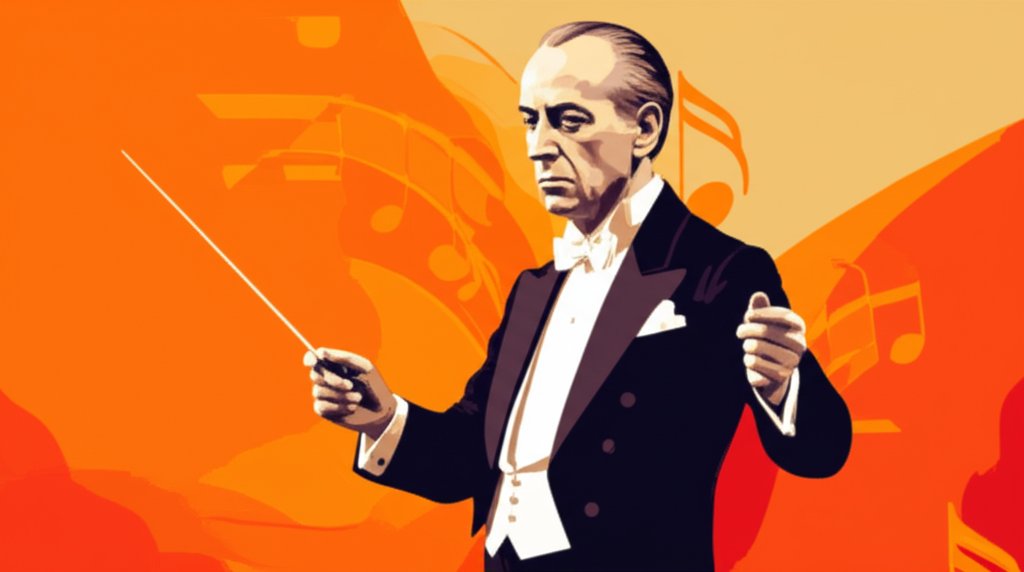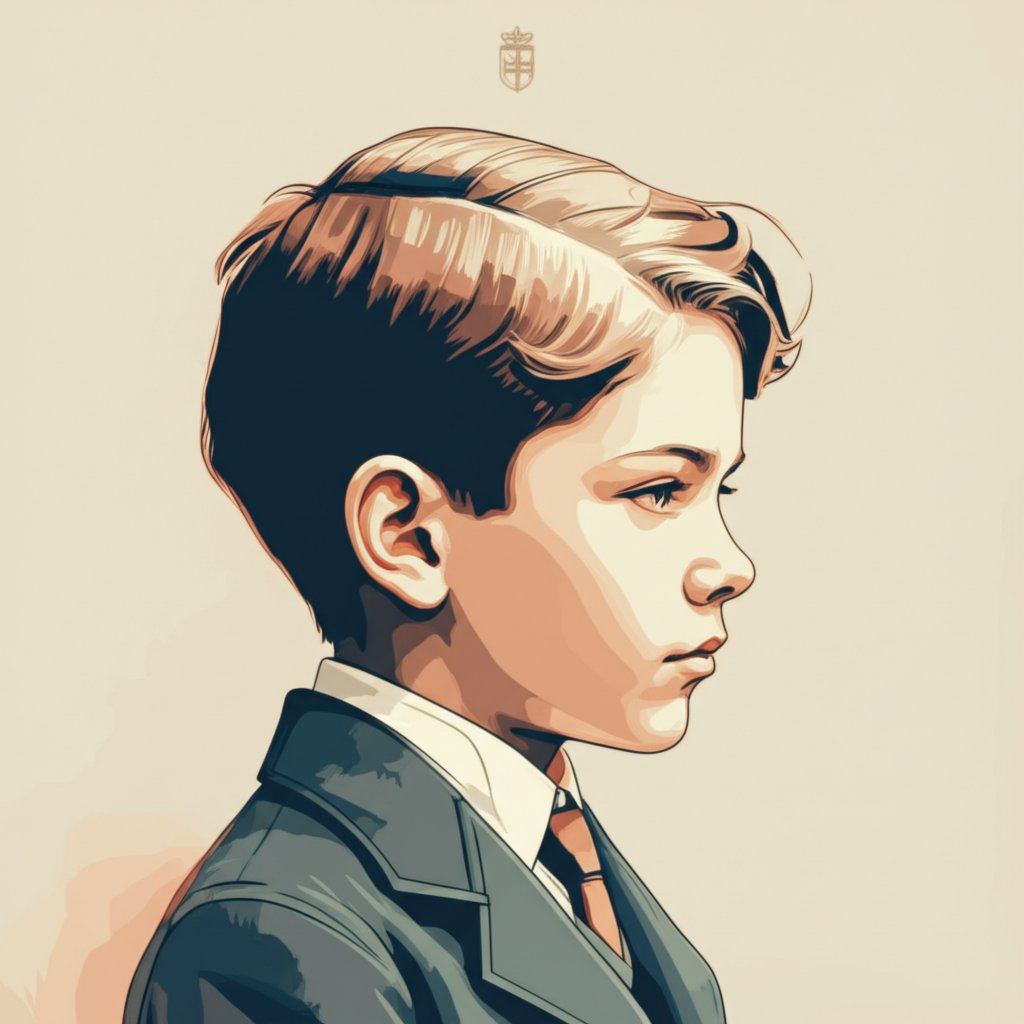The Legacy of Leopold Stanislaus Stokowski: Gloria Vanderbilt’s Eldest Son
Leopold Stanislaus Stokowski, born on August 22, 1950, entered a world already bathed in the incandescent glow of immense fame. His mother, the iconic Gloria Vanderbilt, was a name whispered with reverence—not just a fashion icon and heiress, but also a celebrated actress, writer, and artist, a shimmering, complex thread in the tapestry of American aristocracy. His father, the equally renowned conductor Leopold Stokowski, was a man over four decades her senior, a towering figure in classical music. This stark age difference and the sheer weight of his parents’ public lives undoubtedly shaped young Leopold’s formative years, perhaps steering him toward the unique path he ultimately chose. One wonders how growing up within such a singular family dynamic molded his perception of the world. His life, much like a carefully composed musical piece with its softer, more subtle notes, remains largely unheard. This is the story of the man, the first of Gloria Vanderbilt’s sons, who chose silence over the symphony of his family’s fame.
A Vanderbilt in the Shadows: The Children of Gloria Vanderbilt
Imagine inheriting not just wealth, but a legacy etched profoundly in the public consciousness. The Vanderbilts—a name synonymous with opulence and influence for generations. For Leopold Stanislaus Stokowski, this birthright was both a blessing and a burden. He was constantly under the public’s intense gaze, a subject of whispers and conjecture, much like his mother, the perpetually fascinating Gloria Vanderbilt, whose own tumultuous personal life and diverse career as a fashion designer, actress, writer, and artist kept her in the limelight. This intense scrutiny may have played a significant role in his decision to live a life deliberately removed from the spotlight.
Gloria Vanderbilt was married four times, and from these marriages came her four sons, each experiencing the weight of her legacy in different ways. With Leopold Stokowski, she had Leopold Stanislaus, or “Stan” as he was known to friends (born 1950), and Christopher Stokowski (born 1952). Later, with Wyatt Cooper, she welcomed Carter Vanderbilt Cooper (born 1965) and Anderson Hays Cooper (born 1967). Unlike his mother, his father, and his half-brother, the ubiquitous CNN anchor Anderson Cooper, Stan, the first Gloria Vanderbilt son, sought refuge in the quiet corners of life, away from the constant flash of paparazzi cameras. The family also endured immense tragedy, as Carter Vanderbilt Cooper died by suicide at the age of 23 in 1988, adding another layer of complexity to their public and private lives.
This begs the question: what propelled Stan toward such a divergent path? Was it a conscious rebellion against the relentless public exposure of his family? Or perhaps a quiet yearning for a life defined by his own terms, free from the weight of expectation? Delve into the captivating life and accomplishments of Lenny Hirshan, another figure who navigated a complex family legacy. For a different perspective, explore the journey of Leigh Anne Csuhany.
Leopold Stokowski: Maestro and Modernist
While this narrative focuses on Gloria Vanderbilt’s son, it’s impossible to ignore the towering presence of his father, the legendary Leopold Stokowski. The maestro was a transformative figure in the world of classical music, renowned for his dynamic performances and innovative approach. He didn’t just conduct; he interpreted, injecting each symphonic piece with a dramatic flair that captivated audiences worldwide. Born in London in 1882, Stokowski’s career spanned more than six decades, making him one of the most celebrated conductors of the 20th century. His groundbreaking free-hand conducting style, his passionate championing of modern composers such as Stravinsky and Schoenberg, and his innovative approach to recording and film—most notably, the iconic Disney masterpiece Fantasia—solidified his indelible place in musical history. His long association with prestigious orchestras, including a significant tenure with the New York Philharmonic, further cemented his reputation as a visionary. This was the colossal musical legacy Leopold Stanislaus Stokowski inherited, a weight of expectation that perhaps profoundly influenced his decision to forge a path distinctly his own, far from the podium.

The Businessman Behind the Veil: Leopold Stanislaus Stokowski’s Chosen Path
Leopold Stanislaus Stokowski is often described as a businessman. Yet, the specifics of his professional life remain veiled in an intriguing mist of obscurity. Did he helm a corporate empire, perhaps deftly managing a portion of the vast Vanderbilt fortune? Or did he pursue a different kind of enterprise altogether—a passion project far removed from the glittering world of his famous parents? This missing piece of Leopold’s story adds significantly to his enigmatic allure. Was his choice of career a deliberate departure from the artistic legacies of his mother, Leopold Stokowski, a quiet declaration of independence? Or did he, perhaps, feel the immense weight of his father’s musical genius, a shadow under which he chose not to stand? These questions linger, unanswered whispers in the quiet symphony of his life.
Brothers Apart: The Divergent Destinies of Gloria Vanderbilt’s Sons
Anderson Cooper’s face is instantly recognizable, a nightly presence in millions of homes, a prominent Gloria Vanderbilt son. Yet, his older half-brother, Leopold Stanislaus Stokowski, remains largely unknown, a figure shrouded in mystery. One can only speculate about the nature of their relationship, or the relationships among all four of Gloria’s sons. Did they share childhood confidences, forge profound bonds even amidst their vastly different lives and career trajectories? Or did the contrasting paths and the immense public scrutiny surrounding their family create a distance, an unspoken chasm between their worlds? The complexities of their extended family dynamic, much like Leopold Stanislaus’s life itself, remain an intriguing, largely unexplored territory, a testament to the diverse ways in which the children of famously public figures navigate their inheritance.
The Quiet Power of Privacy: A Choice in a Public World
In a world increasingly obsessed with fame and the relentless pursuit of attention, Leopold Stanislaus Stokowski’s unwavering commitment to privacy seems almost radical. It challenges our conventional notions of success and compels us to reconsider what truly constitutes a meaningful life. Was his preference for anonymity a direct rejection of his family’s very public existence—the constant glare that followed Gloria Vanderbilt and Leopold Stokowski—a yearning for normalcy? Or was it, perhaps, a carefully orchestrated strategy, a profound way to define success on his own terms, away from the clamor of public opinion? Did he, perhaps, find a deeper satisfaction, a richer kind of fulfillment, in the quiet solitude of a life lived beyond the spotlight? Leopold Stanislaus Stokowski’s story serves as a gentle yet powerful reminder that true happiness may not reside in the glare of public adoration, but in the quiet pursuit of one’s own authentic path. It suggests that there is more than one way to compose a life, and that sometimes, the most beautiful melodies are the ones played softly, almost inaudibly, to the rhythm of one’s own heart, a philosophy perhaps shared by the lesser-known Gloria Vanderbilt son.

The Conductor’s Final Bow: The Enduring Passion of Leopold Stokowski
Leopold Stokowski, the elder, lived an exceptionally long and prolific life, dedicated to his craft until the very end. He passed away at the remarkable age of 95 in 1977 in Hampshire, England, his birthplace. His death, attributed to a heart attack, marked the end of an era for classical music. Remarkably, just a year before his passing, he secured a new recording contract, harboring the ambitious goal of working until he reached 100. This unwavering dedication to his craft underscores his enduring passion for music and his relentless pursuit of artistic excellence. It also provides a poignant counterpoint to his son’s life, highlighting the vastly different paths they chose, one embracing the public stage fiercely, the other retreating from it gracefully.
A Life Beyond the Limelight: The Making of Gloria Vanderbilt’s Son
Born in 1950, Leopold Stanislaus Stokowski came of age in the shadow of not one, but two extraordinary figures. His mother, Gloria Vanderbilt, a symbol of American wealth, style, and artistic endeavor, and his father, the celebrated conductor Leopold Stokowski, created a unique and undoubtedly complex family dynamic. This background, while privileged, probably presented its own set of challenges, from immense expectations to constant media intrusion. Choosing a career in business—the specifics of which remain largely unknown—may have been his way of navigating these complexities, of defining his own identity outside the overwhelming realm of his parents’ fame. His commitment to privacy further underscores this desire for autonomy, suggesting a deliberate effort to live a life free from the constant scrutiny that often accompanies public prominence, a quiet assertion of self from a prominent Gloria Vanderbilt son.
A Harmonious Collaboration: Walt Disney and Leopold Stokowski’s Fantasia
The story of one of Leopold Stokowski‘s most iconic projects, Fantasia, begins not on a grand stage, but in the intimate setting of Chasen’s, a bustling Hollywood haunt where Walt Disney and the maestro had a chance encounter. This serendipitous meeting sparked a collaboration that would revolutionize animation and classical music. Disney, recognizing Stokowski’s innovative spirit and dramatic flair, offered him unprecedented artistic control over the film’s musical direction. Stokowski meticulously handpicked the pieces, assembled the finest orchestra, and shaped the film’s entire sonic landscape, breathing life into Disney’s visual imagination. This groundbreaking collaboration resulted in a fusion of animation and classical music that introduced a wider, popular audience to the works of composers ranging from the Baroque brilliance of Bach and the Romantic passion of Beethoven to the modern complexities of Stravinsky and the evocative narratives of Dukas.
A Table of Harmonies: Fantasia‘s Musical Tapestry
Fantasia‘s musical selections were as diverse as they were captivating, carefully chosen by Leopold Stokowski to complement Disney’s visual storytelling. The table below offers a glimpse into the rich tapestry of orchestral works that Stokowski wove into the film’s narrative:
| Piece | Composer | Era/Style |
|---|---|---|
| Toccata and Fugue in D minor | Johann Sebastian Bach | Baroque |
| The Nutcracker Suite | Pyotr Ilyich Tchaikovsky | Romantic |
| The Sorcerer’s Apprentice | Paul Dukas | Romantic |
| The Rite of Spring | Igor Stravinsky | Modern |
| Pastoral Symphony | Ludwig van Beethoven | Classical |
| Dance of the Hours | Amilcare Ponchielli | Opera |
| Night on Bald Mountain & Ave Maria | Modest Mussorgsky & Schubert | Romantic |
Fantasia‘s enduring legacy is still being debated. Some suggest it paved the way for future collaborations between animators and musicians. Others highlight its role in democratizing classical music, making it accessible to a broader audience. Regardless of one’s perspective, Fantasia remains a testament to the power of creative vision and the extraordinary collaboration between Walt Disney and Leopold Stokowski.
Leopold Stanislaus Stokowski: An Authentic Symphony
The life of Leopold Stanislaus Stokowski, the eldest Gloria Vanderbilt son and offspring of the celebrated conductor Leopold Stokowski, remains an enigma. It is a life lived in counterpoint to the public performances and constant scrutiny of his famous family, a quiet melody played against the vibrant, often tumultuous, backdrop of their fame. While many questions about his specific endeavors remain unanswered, his story offers a compelling meditation on the nature of success, the burden of legacy, and the profound power of choosing one’s own authentic path. It suggests that perhaps true fulfillment lies not in the volume of applause or the glare of cameras, but in the quiet resonance of a life lived on one’s own terms, a subtly composed masterpiece understood only by its creator.










